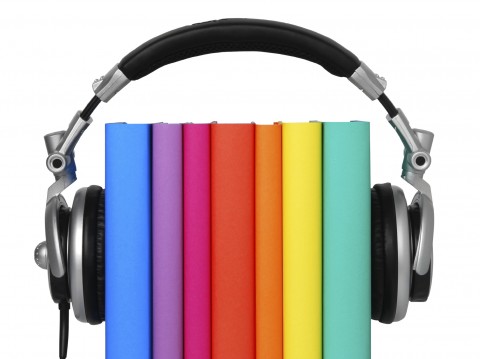
Before we start discussing the best Afrikaans podcasts (free language learning tools of note, especially if you sign up with us at AfrikaansPod101), did you know that the translation of “podcast” in Afrikaans is potgooi? When literally translated, the word potgooi has zero relation to the (usually) downloadable episodic talk recordings streamed online.
Let me explain. Pot is a homophone of the English word “pod,” but literally, pot has the same meaning as the English “pot”—a noun describing certain containers, such as the cooking vessel that’s typically found in the kitchen, the container in which to grow plants, and so forth.
Interestingly, “pot” is also a transitive verb that means “to hit” or “to shoot” in both languages:
- Die klip pot die teiken reg in die middel. (“The stone pots the target right in the center.”)
- Sy vuis pot die dief op die ken. (“His fist hits the thief on the chin.”)
In Afrikaans, it’s generally used this way more often than in English, though.
The second part of the word, gooi, is also a verb. It means “to throw,” or…wait for it…”to cast.”

Luister na ‘n potgooi enige plek, enige tyd. (“Listen to a podcast anywhere, anytime.”)
So, if you found the word a bit puzzling, that’s okay. As you now know, nobody’s throwing around kitchenware or potted plants when using potgooie (“podcasts”). In English, “cast” is derived from “broadcast,” which is exactly what these digital audio files are: a form of online episodic broadcasting. “Pod” is short for “iPod“—the portable electronic media player that replaced Walkmans in the early 2000s.
 Table of Contents
Table of Contents
- Why You Should Use Afrikaans Podcasts for Language Learning
- The Best Afrikaans Podcasts for Learners
- How Can AfrikaansPod101 Podcasts Help You Learn Afrikaans?
1. Why You Should Use Afrikaans Podcasts for Language Learning
Why should you love Afrikaans podcasts? Free language learning tools abound on the internet, and podcasts are among the most popular of these. Here are a few reasons why they’re ideal for learning Afrikaans.
- Podcasts are extremely convenient and easy to use. All you need is internet access.
- You can download podcast episodes onto your device to listen to repeatedly—anywhere, anytime.
- It’s an economical means of sharpening your Afrikaans skills (such as pronunciation and vocabulary acquisition) because, as mentioned previously, many of them are free.
- Podcasts come in all lengths and deal with every topic under the sun. This makes them an interesting way to learn about the country of your target language, too.
- → If you’re also interested in learning about foreign countries, take a look at this article about a prominent tourist destination in South Africa.

‘n Goeie potgooi kan ‘n nuwe wêreld ontsluit vir die luisteraar. (“A good podcast can unlock a new world for the listener.”)
2. The Best Afrikaans Podcasts for Learners
So, what’s available in terms of useful Afrikaans podcasts? We’ve done the research, and while there aren’t many for beginner students of Afrikaans, there’s quite a selection of high-quality recordings to choose from for intermediate to advanced students.
2.1 AfrikaansPod101.com
Levels: Beginner to Advanced
Costs: Free and Paid options
Linguistic Purity: High
Profanity: None
Irrespective of your current competency level, AfrikaansPod101.com is definitely the most extensive online resource for Afrikaans-language acquisition. As the site name (AfrikaansPod101.com) suggests, the main learning tool here is short, topic-focused podcasts. But upon subscribing for a free lifetime membership, plenty of other resources become available too.
The Premium PLUS paid subscription (at a low monthly cost) includes access to an online, native Afrikaans-speaking teacher or coach—valuable, if fluency and accurate pronunciation are important to you.
Our podcast selection is updated regularly, and our content focus is on useful, day-to-day themes. Take, for example, this bite-size podcast on how to introduce yourself in Afrikaans.
Also, a large selection of these podcasts is available on podcast sites such as Radio South Africa, Apple Podcasts, Podbean, and so forth. You’d be hard-pressed to find a more diverse and comprehensive Afrikaans learning site, and the fact that it includes so many free resources makes it the optimal choice for learners at every level.

AfrikaansPod101.com bied verreweg die beste potgooie om Afrikaans mee te leer. (“AfrikaansPod101 hands-down offers the best podcasts to learn Afrikaans with.”)
2.2 RSG (Radio Sonder Grense – “Radio Without Borders”)
Levels: Upper-intermediate to Advanced
Costs: Free
Linguistic Purity: High
Profanity: None
Radio is the grandfather of today’s podcasts, so it only makes sense for us to take a peek at the website of one of South Africa’s premier radio broadcasting stations. The RSG radio station upholds a high standard of talk radio, and it doesn’t disappoint in terms of quality podcasts either.
This radio broadcaster’s site is replete with professionally created episodic recordings for every taste. I particularly like the ongoing Sterre en Planete (“Stars and Planets”) documentary series, which is easily accessible on the podcast site Player FM. Episodes are under 30 minutes long and get updated every two weeks. Also, the content is riveting. Did you know that bottles of South African wine were sent into space for over 400 days? Listen to Episode 16 Mei 2021 (“May 16, 2021”) to learn how this unusual location affected the wine’s aging and taste.
If you love learning Afrikaans with the help of stories and fiction, RSG‘s collection of radio dramas and book readings are a treasure trove. Another podcast site, IONO FM, is a great resource for this, too. For instance, under the heading Radioteater (“Radio Theater”), one-hour-long radio dramas ignite the imagination with colorful characters and storylines. Episodes are approximately an hour long and get updated every week over two seasons each year: April to June and October to December.

Leer in ‘n RSG potgooi hoe wyn verouder is in die ruimte. (“Learn in an RSG podcast how wine was aged in space.”)
2.3 Afrikaans.com
Levels: Upper-intermediate to Advanced
Costs: Free
Linguistic Purity: Medium
Profanity: None
Afrikaans.com is a fairly new journalistic, online collaboration between a group of Afrikaner women who aim to verken (“explore”), vier (“celebrate”), and bemagtig (“empower”) the Afrikaans language. The site’s offerings are diverse, but listeners need to understand the spoken language fairly well for the best experience.
I liked the podcast series with host Edwin van der Walt, who interviews young, inspiring South Africans from all walks of life. They all share their struggles and ideals, and the language is pretty standard for that demographic. Each episode is approximately an hour long, and the series is updated every two months or so.
Also consider the newly introduced series called Luister (“Listen”), which kicks off with the reading of Padkampstories (“Road Camp Stories”), written by Amanda Greeff. The book comprises the memoirs of a girl who was raised on the road, so to speak. Her father was a laborer in the government road-building teams, whose families often traveled along and lived in padkampe (“road camps”) during very long projects. If you can get past the slightly irritating backing track, this is an excellent way to practice your pronunciation skills and simultaneously be entertained by a sometimes-nostalgic look into a specific Afrikaner subculture.

Geniet Afrikaanse radiodrama en voorlesing potgooie—teater van die verbeelding. (“Enjoy Afrikaans radio drama and reading podcasts—theater of the imagination.”)
2.4 Niche Afrikaans Podcasts
Levels: Advanced
Costs: Free
Linguistic Purity: Medium – High
Profanity: None
Interested in business? Agriculture? Traveling? Health? If you have the Afrikaans language under your belt and can understand it fairly well, these niche podcasts are a must:
- ➢ BoerPot (“Farmer’s Pot”) Podcast: Whether you’re ‘n boer in murg en been (literally: “a farmer in marrow and bone”), a student of agriculture, or simply curious about the industry, this series of Afrikaans podcasts are sure to fascinate and inform. Seasoned journalist and radio presenter, Jacques Basson, conducts informative and very professionally executed interviews with successful South African farmers and entrepreneurs. While the series, unfortunately, lacks race and gender diversity, the podcasts are nevertheless of high quality—this makes them ideal for practicing your Afrikaans listening, comprehension, and articulation skills. Episodes are updated periodically and are available for listening on multiple platforms.
- ➢ Weg Stories (“Away Stories”) Podcast: Does your soul long for savannas and long, quiet roads? With these excellent traveling podcasts, let your imagination transport you to a few of South Africa’s beautiful neighboring countries. Sadly, the series was terminated after only seven episodes, but it remains more than worth the listen. Each episode is approximately an hour long and professionally presented (in beautiful Afrikaans) by skilled presenter Francois Haasbrook. He converses with colleagues, experts, and seasoned travelers.
- ➢ Klipkouers (“Rock Munchers”) Podcasts: This is another podcast series presented by Jacques Basson, but here he interviews inspiring Afrikaans entrepreneurs and “impact makers,” as he calls them. These movers and shakers are from various industries and share inspirational life stories and tips for success. I especially liked the interview with Morné Basson, whose triumph of the spirit translated into a great service for young fatherless boys. The series is also not very diverse in terms of race and gender, but it provides quality listening and learning material nevertheless. It’s played on many platforms, and each episode is approximately one hour long. Note that, here and there, episodes overlap with Boerpot.
- ➢ SFM Streek Potgooi: This is another radio broadcast station with a designated potgooi section. Though still under development, SFM‘s podcast service is a promising enterprise that gives a glimpse into regional (specifically Southern Cape) news and lifestyle. Also, many episodes are bite-size, ranging from as short as five minutes to as long as 30 minutes. Topics, so far, include health and wellbeing, religion (Christian), and Allegaartjie (a quaint Afrikaans term that means the same as “hotchpotch” or “mixed pot”).

Radio-uitsendings is die voorvader van potgooie. (“Radio broadcasts are the forefather of podcasts.”)
3. How Can AfrikaansPod101 Podcasts Help You Learn Afrikaans?
As previously mentioned, podcasts can be a very helpful tool to help you learn Afrikaans. Here’s how we suggest you make use of them. But before you do—sign up and download the AfrikaansPod101 app straight away! It’s a versatile and very useful tool for students on the go.
3.1 Practice Shadowing
“Shadowing” is the term for repeating words and phrases after a native speaker. Or, to put it differently, you listen to a recorded lesson or a podcast, repeating what you hear as you go along. You could also download the audio tracks from the site to replay them over and over again. (Use the Pause button in a podcast so you never have to miss a beat. The AfrikaansPod101 app is great for this!) You can do this anytime you have a moment to practice, such as when you’re sitting in the subway, commuting on the bus, or driving in your car.
3.2 Set Specific Goals for Easy Conversation
Set a specific goal and practice regularly. Speaking is almost always the weakest skill for language learners. To improve yours, start by deciding on an everyday topic, such as the weather, and then search for the appropriate podcast with a transcript. From the transcript, jot down a few sentences that you’d like to memorize. Now use both the recording and the written sentences to practice, practice, practice, till you can use the phrases with ease in any conversation!
3.3 Commit to a Few Minutes of Practice Every Day
If you really want to use podcasts to learn Afrikaans, commitment matters. Put time into your learning and make it a goal to practice shadowing for at least five to ten minutes a day, for instance. Alternate between using the podcast’s transcript and not using it; this will enhance your understanding and challenge you a bit. Peter Galante, co-founder and COO of InnovativeLanguage.com, calls these short sessions “productive practice.”
3.4 Record Yourself
Record yourself on any device, such as your smartphone or your computer. This tactic allows you to hear what your Afrikaans sounds like so you can more easily improve your pronunciation.
3.5 Learn the Grammar!
Grammar is the theoretical backbone of any language. The rules provide structure and order, which makes a language easier to study. If you’re following a specific learning path, such as those we offer at AfrikaansPod101.com, you will be constantly evaluated to see how you’re doing with the grammar aspect of your learning. Podcasts highlight different aspects of grammar and can be an invaluable resource in this regard.
3.6 Get Feedback from Native Speakers
Feedback, while difficult to receive sometimes, is a very necessary part of learning. Receiving feedback from a tutor or native Afrikaans speaker is the only way you’re going to know how you’re really doing. With your own AfrikaansPod101 teacher (a real person—not an algorithm or a bot!), you’ll be required to record yourself for evaluation. They’ll give you valuable advice and help you with specific grammar and pronunciation issues.
Don’t hesitate—enroll with AfrikaansPod101 today and start learning with Afrikaans podcasts straight away!
About the author: Christa Davel is an experienced bilingual (Afrikaans and English) freelance writer and editor, and is currently based in Cape Town, South Africa. She’s been writing for InnovativeLanguage.com since 2017.










